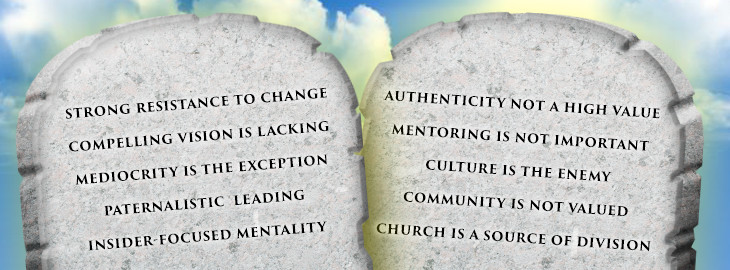
“Millennials are not looking for perfect people…Jesus already handled that.”
Posted On July 14, 2015
How do you keep millennials in your church? You certainly can’t be afraid of change – and change is not something with which religion has been historically comfortable.
This is an entity, after all, that hasn’t changed its mission statement in 2,000 years. But while the mission by definition won’t change, it never hurts to update best practices.
As churchleaders.com’s Frank Powell notes, attracting a new generation that’s 80 million strong should be a priority for any institution that wishes to remain relevant. If the church hopes to do that, “that’s the way it’s always been done” has to go the way of the dodo.
Millennials have their own ideas about what goals and attributes are important and aren’t necessarily prone to fall back on the traditions of the past as a blueprint.
Inclusivity and unity are in. Divisiveness and isolationism are out. Learning is still important. Pedantic pedagoguery, not so much. Big-picture vision is essential. Obsessiveness with the rote details of tradition is passe.
But there is one requirement among the 10 presented by Powell that may stand above the rest – a millennial’s church must be grounded in reality.
Authenticity, however, means acknowledging one’s shortcomings, because we all have them. Millennials have grown up in an age of hyper-communication in which all the failings of religion and its leaders have been brought into the harsh light of cyberspace. They’ve seen the hypocrisy of televangelists, the pedophilia of priests and enough scandal to sour a naturally skeptical twenty-something for good.
Despite all that, millennials still thirst for the wisdom and insight of mentors and others who can give them the knowledge they value.
As Powell notes: “Millennials are not looking for perfect people … Jesus already handled that. Millennials are looking for people to be real and honest about struggles and temptations.”
Millennials want to be agents of change. They believe they can change the world. It’s up to the church to be transparent and forward-thinking enough to convince them it’s the right medium in which to do so.
Millennials may see the world differently than their predecessors, but ultimately what they want is what the church was founded to provide – a Christ-centered community.
Not such a novel concept after all, is it?